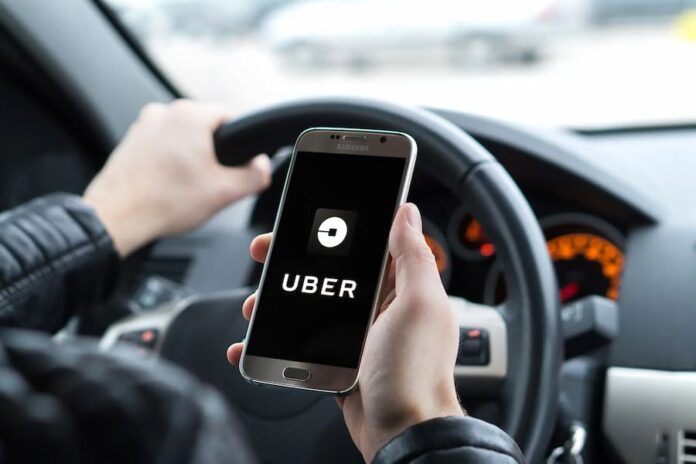The question of whether Uber drivers ought to be categorized as independent contractors or employees has dominated legal arguments in numerous nations in recent years. Drivers have filed multiple lawsuits against Uber, the massive international ride-hailing company, claiming they are entitled to employment rights such as minimum wage, payment for holidays, and other benefits. Nonetheless, Uber has continuously insisted that its staff members are not employees but rather independent contractors. This article examines the main defences. Uber workers need to know about Uber Claims of driver employment and consider how these defences may affect the gig economy.
Employees (those who supply services under a legally binding or implied Contract of Employment); employees (those who are contracted to supply services and consent to doing the work individually, but who have no assurance of getting work or compelled or take work); and self-employed independent contractors (those who work for themselves, hold themselves accountable for the time and place that they place of employment, and invoice themselves for their services) are among the three primary a position categories into which any individual may fall in the United Kingdom.
Drivers Possess Control And Flexibility
Uber’s drivers have a great deal of adaptability and authority over their work schedule, location, and frequency, which is one of its best points. Uber drivers are free to log in and out from the app wherever they want, unlike regular employees who are constrained by predetermined timetables and hours. Uber claims that this flexibility is different from an employer-employee relationship because it enables individuals to set their timetables and work despite other commitments.
- Uber claims that drivers’ freedom to choose their schedules is more indicative of a contractor who works independently than of an employee who is dictated to by the business.
- Uber’s appeal against a historic employment tribunal decision that its drivers need to be considered employees with a right to paid holidays and the minimum pay has been denied by judges.
- The judges supported an employment tribunal decision in October 2016 that may have an impact on tens of thousands of gig economy workers. A 2-1 majority ruling resulted from the dissension of a third judge, Lord Justice Underhill.
- The judges concluded that the usual agreement between Uber with its drivers, who it claims are self-employed workers with limited job rights, contained a “high degree of fiction.”
The Ruling Stated
“It adds to the sense of deceit and artificiality that permeates Uber’s case that [Uber] is telling its statutory regulator that it is running a private hire automobile service in London and is an appropriate and qualified individual to do so, while at the same time disagreements in this litigation the fact that it is merely the subsidiaries of a Dutch-registered the organization that licenses hundreds of thousands of small business owners to use its software.”
After being granted permission, Uber announced that it would appeal the most recent decision to the Supreme Court. Before going to the court of appeals, the company filed an appeal with the Employment Appeals Tribunal.
Uber Is A Platform Rather Than A Company
Uber argues that it is not a typical transportation firm but rather an electronic system that links drivers and passengers. According to its perspective, Uber does not hire drivers; rather, it offers a service that makes it easier for two separate parties—the vehicle and the rider—to communicate with one another.
Uber highlights that its main function is to supply the infrastructure and software that allow drivers who operate independently to locate clients by framing itself as an online community rather than an employer.
Access To Various Revenue Streams For Drivers
Uber frequently claims that its drivers are allowed to work for rival ride-hailing services like Lyft or Bolt at the same time. This capability to “multi-app” lends credence to the idea that drivers are self-employed individuals who are free to work with many revenue streams.
Uber argues that it cannot be regarded as a conventional employer because it permits drivers to work on several platforms without an exclusive agreement. The ability to select from a variety of applications allows drivers to optimize their profits and solidifies their position as independent subcontractors rather than workers with a single employer.
Drivers As Entrepreneurs
Uber contends that because its drivers are in charge of their cars, maintenance, insurance, and gasoline, they function more like small company owners than employees. Drivers must pay for the costs of operating their businesses, such as taxes and car maintenance, which is in line with the duties usually performed by independent contractors as opposed to employees.
Additionally, Uber highlights that drivers can maximize their income by scheduling their work during periods of high demand, such as weekends or holidays, when surge pricing is in place. The company’s claim that drivers are managing their own modest enterprises rather than working for Uber is further supported by this entrepreneurial aspect of driving for the company.
Final Words
This ruling establishes a standard regarding how tribunals will rule in employment status matters moving forward. Although the test of worker status depends on several elements, it is evident that a firm that engages people with a high degree of control will encourage a case in which those people may be considered workers.
Visit Quice For More Informative Blogs.

